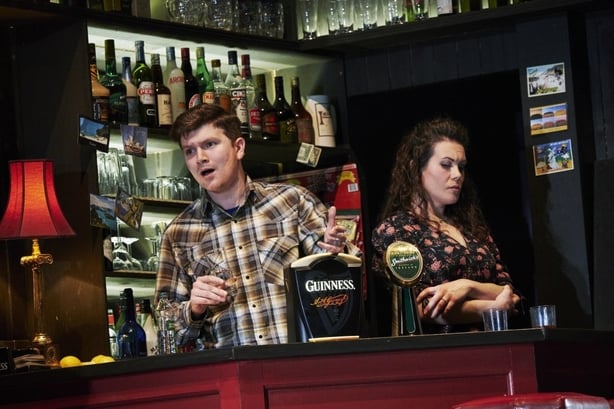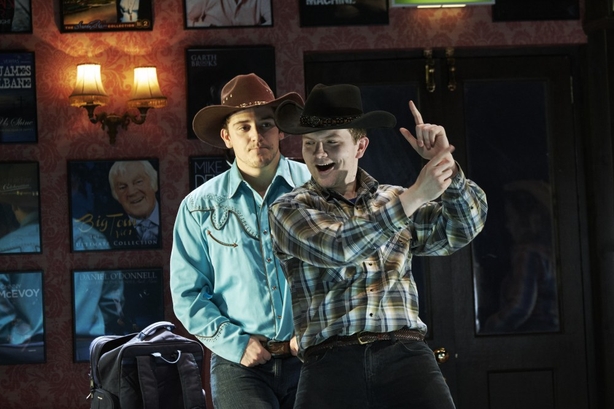Director Tom Creed writes for Culture about his new production of Handel's opera Acis and Galatea, currently on tour and playing Dublin later this week as part of MusicTown 2017.
Acis and Galatea is a pastoral: this genre was in fashion in the 17th and 18th centuries in London, presenting an idealized image of rural life for urban audiences. In plays like As You Like It and The Winter’s Tale, Shakespeare depicted the countryside as a place where life is simpler and purer, and whose inhabitants live more closely to nature and to each other than their urban counterparts. Handel composed his “little opera” Acis and Galatea in 1718 for a first performance at Cannons, the home of his patron the 1st Duke of Chandos. Local tradition holds that it was performed on the terraces overlooking the gardens, which contained elaborate water features so to ideally suit the transformation of the dead Acis into a fountain at the end of the opera. Handel revised the Acis and Galatea extensively throughout his career, and it remained the most widely performed of Handel’s dramatic works during his lifetime. For this Opera Theatre Company production, we have chosen to use the 1718 version, for its emotional directness and dramatic simplicity.
Creating drama in idealised rural settings is not unique to the 18th century. Boucicault’s hit plays The Colleen Bawn and The Shaughraun do so in an Irish landscape, and Yeats, Lady Gregory and Lennox Robinson continued the tradition following the foundation of the Abbey Theatre in 1904. More recently, Brian Friel, Tom Murphy and Marina Carr have mined rural life in rich and complicated ways. Today, Irish drama is still closely identified with the land and the landscape.
Opera is a unique arena where ideas and beauty can co-exist, where we can stop and contemplate.
Acis and Galatea tells the story of a homecoming, a love rivalry and an act of violence. The plays of Tom Murphy – Conversations on a Homecoming, The Wake and The House – tell stories of people returning from afar to small towns and villages and the dark consequences of going away and daring to return home. Murphy’s early play A Whistle in the Dark culminates in a tragic and random act of shocking violence, in which the attempt to get away from home is crushingly frustrated.

We imagine Acis and Galatea in this tradition, in a very recognisable contemporary rural Ireland, where couples are separated by emigration and love stories are played out to the strains of country music. The 2015 marriage equality referendum was a clear sign that rural Ireland was becoming more tolerant, but local rivalries and suspicions remain and alcohol-fuelled violence and bravado is still a defining national characteristic.

As we prepare to open this new production at the National Opera House in Wexford, I find myself remembering Colm Tóibín’s beautiful call to action in that same auditorium during the Opera Europa conference in 2013. He suggests that opera can teach us “how to live, how to pay attention to the world in all its fleeting beauty.” He writes: “It seems to me that the purpose of opera is to change the world. The change we make may be slow and subtle, but it is also spiritual, and spiritual change is always slow and subtle, as it is powerful.” Opera is a unique arena where ideas and beauty can co-exist, where we can stop and contemplate, where we can take precious hours to consider our relationships with each other and with the world. To bring opera as close as possible to our contemporary world and to drag it into the here and now, is to use it to contemplate lessons from the past and apply them directly to our own lives.
Opera Theatre Company’s new production of Acis and Galatea, conducted by Peter Whelan, directed by Tom Creed, and featuring the Irish Baroque Orchestra, is on tour in Ireland until 13th April. More information at opera.ie. The tour includes a date at O’Reilly Theatre Belvedere on 11 April, as part of MusicTown 2017.

